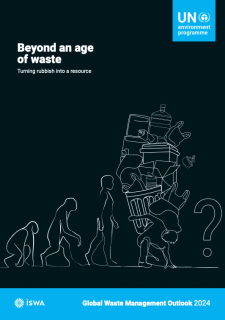
Every year across the globe more than two billion tonnes of municipal solid waste is generated. It is predicted growth from 2.3 billion tonnes in 2023 to a daunting 3.8 billion tonnes by 2050. In 2020, the direct financial burden of waste management globally amounted to roughly USD 252 billion. Yet, when considering the concealed costs associated with pollution, compromised health, and climate change stemming from inadequate waste disposal methods, this figure escalates significantly to USD 361 billion. Without swift intervention in waste management practices, by 2050, these expenses could surge to an alarming USD 640.3 billion annually.
Fortunately, the report highlights potential avenues for mitigating these escalating costs. Implementing waste prevention strategies and enhancing waste management could curtail net annual expenditures by 2050 to USD 270.2 billion. However, the most promising prospect lies in transitioning to a circular economy framework. By prioritizing waste avoidance, adopting sustainable business practices, and ensuring comprehensive waste management, this model could yield a net gain of USD 108.5 billion per annum, effectively reversing the financial burden of waste management.
This report provides an update on global waste generation and the cost of waste and its management since 2018. The analysis uses life cycle assessments to explore what the world could gain or lose through continuing business-as-usual, adopting halfway measures, or committing fully to zero waste and circular economy societies.
It also evaluates three potential scenarios of municipal waste generation and management, examining their impacts on society, the environment and the global economy, and presents potential strategies for waste reduction and enhanced management to treat all waste materials as valuable resources.
